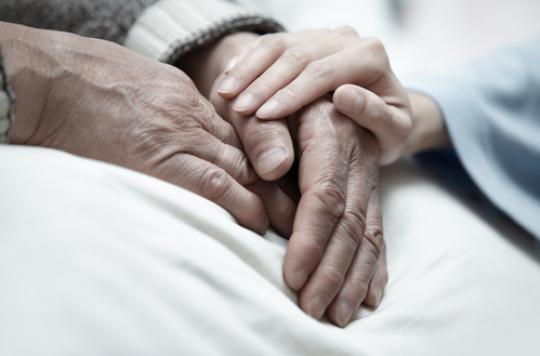In the event of euthanasia, the concept of “unbearable suffering” is at the heart of the legislation. However, it is difficult for practitioners to measure it, especially outside the terminal phase or in cases of mental disorder.

Five states in the United States (Washington, Oregon, Vermont and California) allow euthanasia or assisted suicide. As well as five countries in the world: Colombia, the Netherlands, Luxembourg, Switzerland and Belgium.
In most of these countries or states, euthanasia legislation focuses on the “unbearable suffering” of terminally ill patients. Patients will die in all cases of their pathology, and euthanasia is a way to shorten their suffering so that they die with dignity.
But in three countries, the law does not apply only to the terminally ill. In the Netherlands, the patient’s suffering must be unbearable and without hope of improvement. In Luxembourg and Belgium, it is still different: the two States consider that psychological or psychological suffering, if it cannot be relieved, is justifiable to claim to die by euthanasia. But then, how to measure it?
Judge psychological and psychic pain
In Belgian law, suffering must be “constant, unbearable and unappeasable”. In 2013, a 44-year-old man died by euthanasia in Brussels. Since his birth, he suffered from identity problems. Born a girl, he undertook a sex change between 2009 and 2012. Operations which, according to him, worsened his suffering. The doctors therefore ruled that his request was in accordance with the law.
Such authorization is not easily obtained. The person who wishes to die must obtain the agreement of three different doctors, who study the patient’s case and write a report. Then, the file is examined by the euthanasia control commission, a body to which the practitioners must be accountable in the event of a problem. At each “step” of the process, doctors ask the person if they are sure of their choice. And she can give up until the last moment.
To judge unbearable psychological and psychological pain is difficult, much more difficult than physical pain linked to cancer, for example. Therefore, this raises ethical questions among practitioners. But also concerning human rights. Because in the law, euthanasia must remain a last resort. How then, when the patient has a mental illness? How can you be sure of your patient’s choice?
The case of people with mental illness
A study was published in the British Journal of Psychiatry, this month of October. Researchers analyzed the testimonies of 26 people (20 women and six men) suffering from psychological or mental disorders. These people have all submitted a file to resort to euthanasia. The aim of the study: to try to establish a definition of their suffering.
Overall, the patients evoke permanent mental distress and a feeling of hopelessness. They feel that their treatments are no longer working, that they are becoming like dolls in the hands of doctors. Death becomes for them the last resort.
But the great difficulty is to differentiate a feeling caused by the disease, from an unbearable and real suffering. A depressed person, for example, may have an extremely pessimistic outlook on their life. Does this mean that she is unbearable to him in the legal sense of the term?
The doctor’s responsibility
It’s up to the doctor to judge. And the latter has every right to refuse to process this file if he considers that the patient’s request is not legitimate and that it is not in accordance with the law.
Still according to the study published in the British Journal of Psychiatry, defining the suffering of patients with mental disorders can help practitioners to better understand them. It could also help patients regain hope. Knowing that doctors hear their suffering, that euthanasia can be a possible solution.
In 2015, a 24-year-old young woman obtained the right to die. On the scheduled day of her euthanasia, she stepped back and decided to live. In a documentary produced by the British magazine The Economist, she tries to explain: “It’s not very clear. Was it the serenity of death so close that made it more bearable or did something change in me? I tried to think as little as possible about my truth, that I had better not exist. “
For Steve Pearce, a psychiatrist member of the Oxford NHS Foundation, the case of people with mental disorders obviously raises necessary ethical questions. But the real issue is this: to know why these people, who must be taken care of and followed, find themselves so desperate.
.















